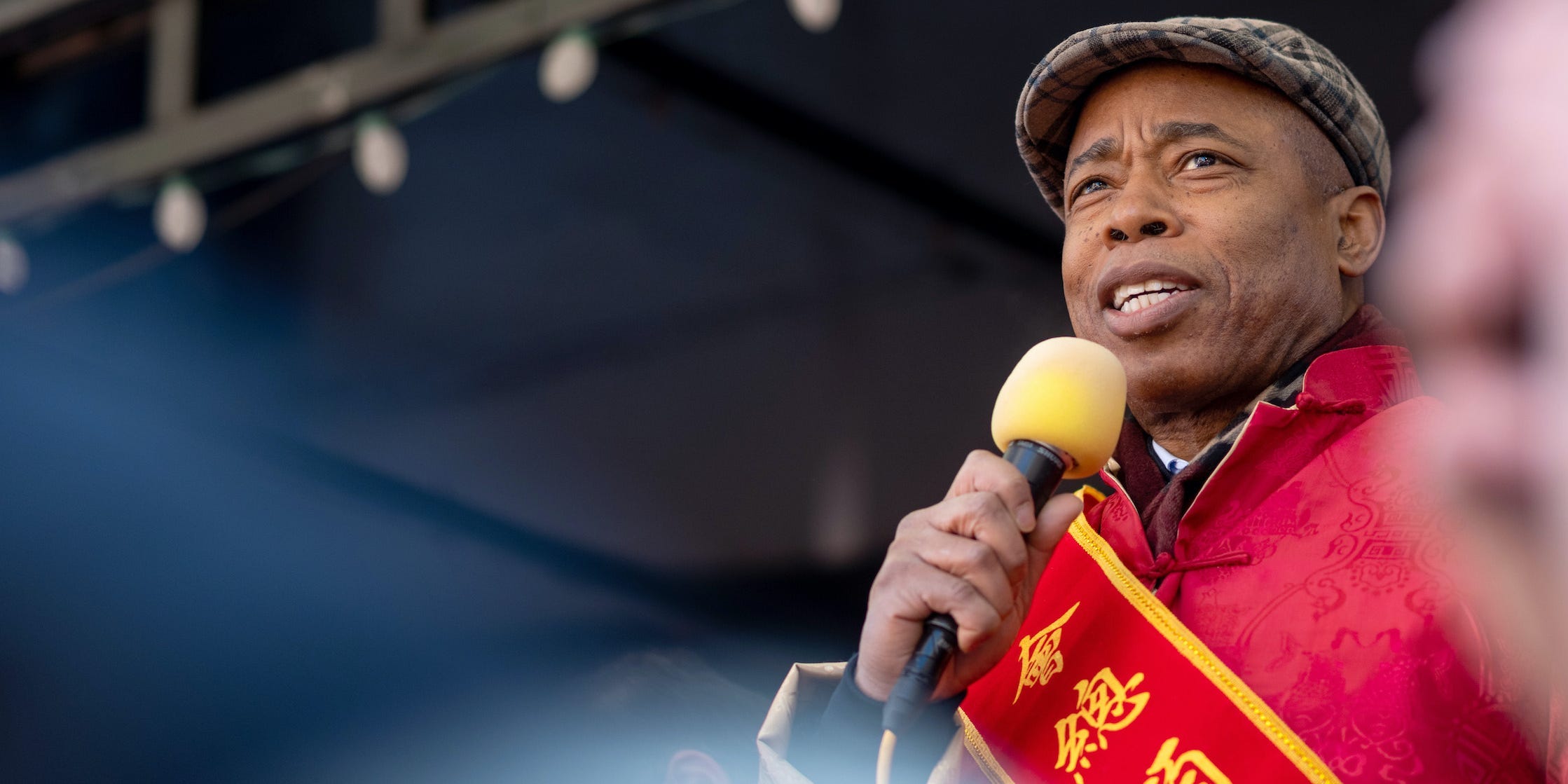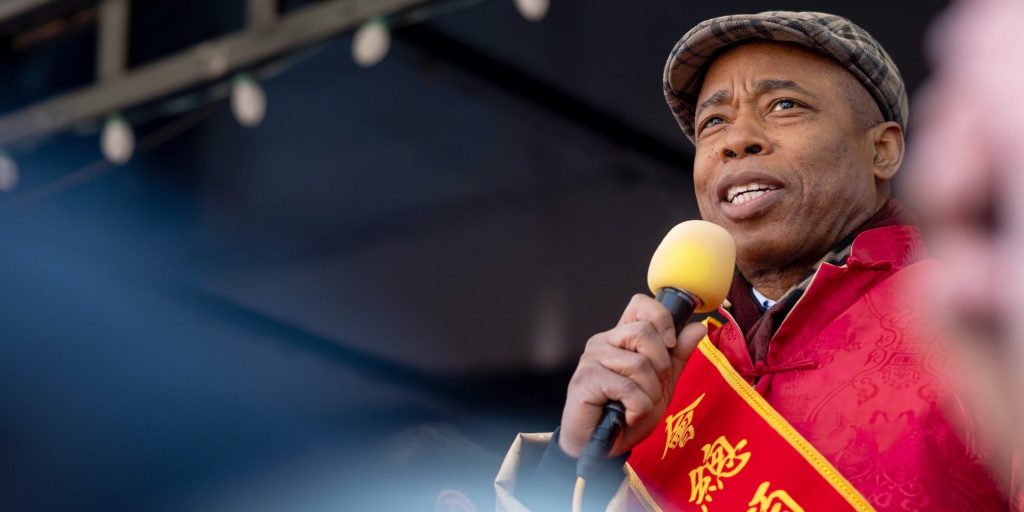
- New York City Mayor Eric Adams once again criticized remote work.
- "You can't stay home all day in your pajamas," Adams said on Wednesday.
- Indefinite "work from home" policies aren't economically sustainable for the Big Apple, he argued.
New York City Mayor Eric Adams renewed his call for New Yorkers to return to the office on Wednesday, positing that remote work is economically unsustainable and ultimately harmful to low-income New Yorkers.
"In order for our economic — financial ecosystem, I should say — to function, we have to have human interaction," Adams said at an economic development event at the Brooklyn Navy Yard. "It can't be done from home. And if we do that, then we're going to greatly impact low wage workers."
Since taking office in January, Adams has embraced his own genre of pep talks, telling New Yorkers things they may not want to hear or likely haven't heard from local politicians.
From urging constituents to change their pandemic mindset and stop feeling "so used to getting the L's" to comparing heroin addiction to being "hooked on cheese," Adams often addresses the public directly at his events.
After making a similar point on remote work back in early January, Adams sparred with Rep. Alexandria Ocasio-Cortez, a fellow New York Democrat, over his comment that "low-skilled workers" don't have "the academic skills to sit in the corner office."
"When you talk about closing down our city, you're talking about putting low-wage workers out of a job," Adams said during the Omicron surge. "I'm not letting that happen."
At the Brooklyn Navy Yard on Wednesday, Adams argued that the current situation of indefinite remote work across white collar employment sectors should not become the new normal. He also said "everything is on the table" when it comes to rezoning Manhattan's business districts, which could allow for large office spaces to be converted into apartments.
"So it's imperative that our economic leaders sit down and say what our business centers and districts are going to look like," Adams said. "Do we change the zoning? Do we allow these new workforce housing that's coming together outside, because there's new ways people are doing business? So we need to look at all of those things.
But one thing that can't happen: You can't stay home in your pajamas all day," Adams continued. "That's not who we are as a city. You need to be out, cross-pollinating ideas, interacting with humans. It is crucial. We are social creatures, and we must socialize to get the energy we need as a city."

